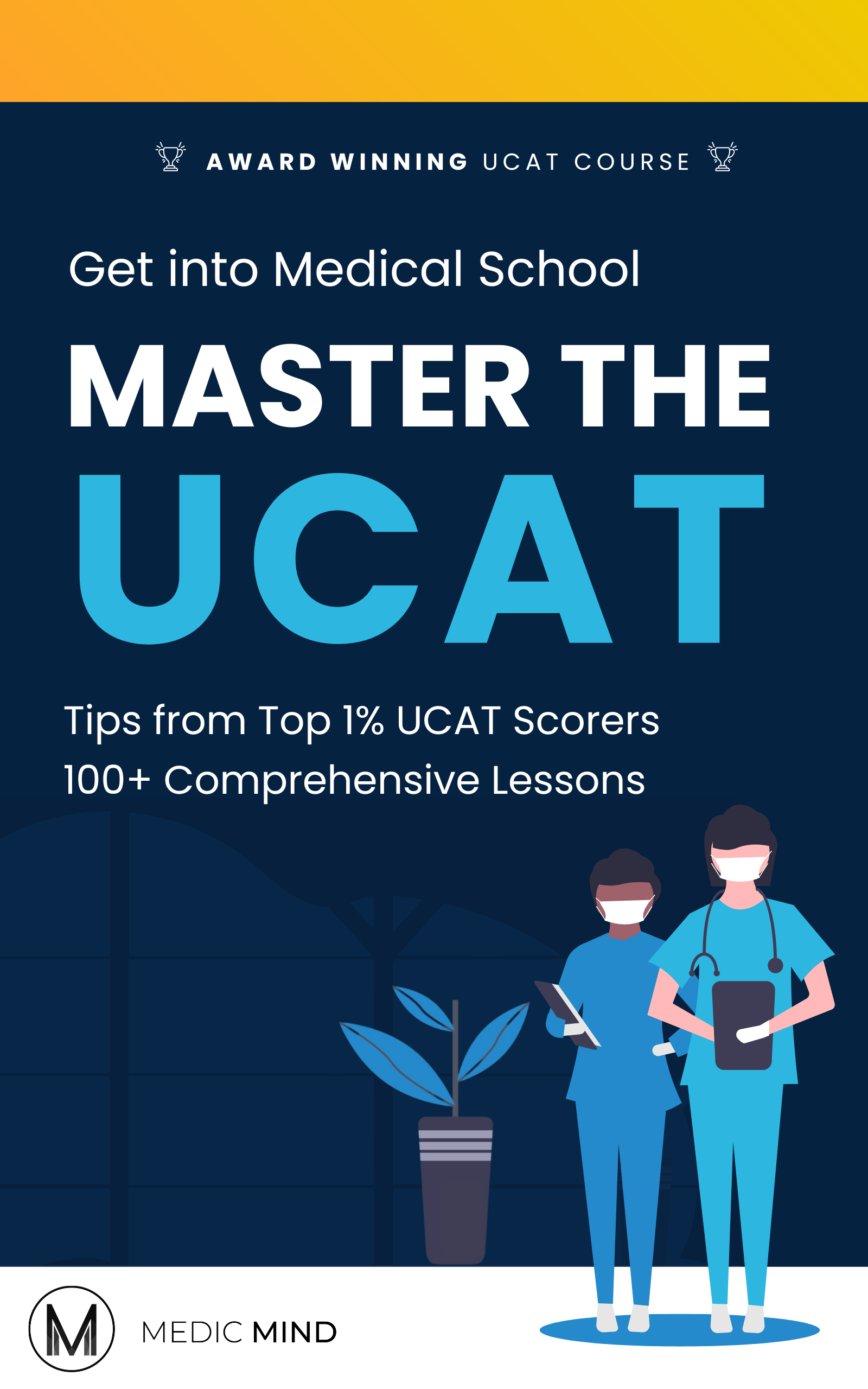Loading...

Medical School Rankings
Medical schools in the UK are among the most prestigious in the world, and the competition for places is high. Thousands of students send a medical school application in the UK each year, with only a small percentage gaining acceptance. One factor that students often consider when choosing a medical school is the institution’s ranking. This article will discuss medical school rankings in the UK and what they mean for prospective students.
Medical school rankings in the UK are typically determined by many factors, including research output, teaching quality, student satisfaction, and employability. Organisations such as The Guardian, Complete University Guide, and QS World University Rankings produce the most well-known rankings.
These rankings are based on a range of metrics, including student to staff ratios, research quality, and graduate employment rates.
According to the most recent rankings, the top medical schools in the UK are the University of Oxford, the University of Cambridge, and Imperial College London. These institutions have a long-standing reputation for excellence in teaching and research, and are consistently ranked among the best in the world.
However, other institutions such as the University of Edinburgh, University College London, and the University of Manchester also have strong medical programmes.
This table provides a breakdown of the 2023 rankings for medical schools, divided into four columns. The first column displays the overall score according to The Guardian‘s overall score, while the remaining three show overall score from Complete University Guide as well as scores for student satisfaction and graduate prospects, respectively.
Kickstart your Interview Prep
Book a session with one of our expert interview tutors to boost your chances of getting into medical school! Call us on +44 (0) 203 305 9593 for a free consultation.
| Medical School | The Guardian Overall Score (out of 100) | Complete University Guide Overall Score (out of 100) | Student Satisfaction (out of 5 – Complete University Guide) | Graduate Prospects (out of 100 – Complete University Guide) |
| Edinburgh | 97 | 98.2 | 3.92 | 99 |
| Aberdeen | 97.2 | 96 | 4.10 | 100 |
| Brighton & Sussex | 90.5 | 94.7 | 4.45 | 100 |
| Swansea | 92.2 | 96.9 | 3.96 | 100 |
| Oxford | 93 | 99.6 | N/A | 99 |
| Dundee | 83.1 | 97.4 | 4.08 | 100 |
| Cambridge | 100 | 100 | 3.98 | 99 |
| St Andrews | 94.2 | 97.3 | 4.32 | 95 |
| Keele | 87.2 | 95.8 | 4.27 | 100 |
| Bristol | 82.3 | 97.9 | 4.3 | 100 |
| Imperial | 96.6 | 97.9 | 4.15 | 98 |
| Leeds | 73.7 | 95.3 | 4.06 | 99 |
| Glasgow | 84.9 | 98.3 | 4.15 | 97 |
| Barts (Queen Mary) | 73.6 | 96.5 | 4.09 | 100 |
| Liverpool | 79.6 | 95.7 | 4.12 | 99 |
| Warwick | 62.4 | 94.7 | 4.08 | 100 |
| Exeter | 70.7 | 97.1 | 4.08 | 98 |
| Newcastle | 74.7 | 96.1 | 3.95 | 99 |
| Queen’s Belfast | 73.2 | 97.3 | 3.97 | 99 |
| Cardiff | 76.2 | 96.5 | 3.95 | 100 |
| Hull York | 76.5 | 95.9 | 4.00 | 100 |
| Leicester | 75.1 | 97.4 | 4.24 | 100 |
| UCL | 74.1 | 96.9 | 3.76 | 97 |
| Norwich (UEA) | 71.5 | 96.9 | 4.12 | 98 |
| Sheffield | 60.5 | 95.6 | 3.89 | 100 |
| Manchester | 61 | 96.6 | 3.73 | 99 |
| Lancaster | 65.2 | 95.9 | 3.98 | 100 |
| King’s College London | 63.4 | 96.2 | 3.79 | 99 |
| Southampton | 63.1 | 95.4 | 3.95 | 99 |
| Plymouth | 64.4 | 94.8 | 3.98 | 100 |
| Birmingham | 63.3 | 95.4 | 3.72 | 99 |
| Nottingham | 47.5 | 95.1 | 3.46 | 100 |
| UCLan | 36.5 | 88.5 | 3.84 | N/A |
| St George’s | 38.1 | 95 | 3.52 | 99 |
| Buckingham | 49.1 | 89.6 | 3.94 | 100 |
| Aston | 54.2 | N/A | N/A | N/A |
| Anglia Ruskin | 37.8 | N/A | N/A | N/A |

Rankings of International Medicine Schools
The QS World University Rankings are widely considered as the most comprehensive global guide for ranking medical schools. The rankings are compiled by surveying both academics and employers, providing a holistic assessment of the institutions. Notably, Oxford, Cambridge, UCL, Imperial, and King’s College London are all featured in the top 20 medical schools worldwide according to the 2020 QS rankings.
| Medical School | Overall Score | Medicine Ranking |
| Harvard University(USA) | 99.5 | 1 |
| Stanford University(USA) | 93.6 | 3 |
| Johns Hopkins(USA) | 92.4 | 5 |
| University of Los Angeles, California(USA) | 90.8 | 6 |
| Yale University(USA) | 89.5 | 9 |
| University of Toronto(Canada) | 89.4 | 10 |
| Massachusetts Institute of Technology (MIT)(USA) | 89.2 | 11 |
| Karolinska Institutet (Sweden) | 88.8 | 12 |
| University of California, San Francisco (USA) | 88.4 | 13 |
| Columbia University (USA) | 88.3 | 14 |
| University of Pennsylvania(USA) | 88.2 | 15 |
| Duke University(USA) | 86.5 | 17 |
| University of Sydney(Australia) | 85.6 | 18 |
| University of Washington(USA) | 85.3 | 19 |
| University of Melbourne (Australia) | 85 | 20 |
| National University of Singapore(Singapore) | 84.8 | 21 |
| McGill University(Canada) | 84.6 | 22 |
| University of California, San Diego(USA) | 84.6 | 22 |
| University of Michigan-Ann Arbor (USA) | 84.1 | 24 |
It is worth noting that while rankings can be a useful tool in helping students decide where to apply, they should not be the sole deciding factor. Factors such as location, course structure, and extracurricular activities should also be taken into account when considering which medical school to attend.
Another important consideration when choosing a medical school is the entry requirements. Most medical schools in the UK require high grades in science subjects, as well as a strong performance in the UK University Clinical Aptitude Test (UCAT) or the Biomedical Admissions Test (BMAT). Competition for places is fierce, and many students apply to multiple institutions in order to increase their chances of acceptance.
Kickstart your Interview Prep
Once accepted into a medical school, students will typically study for five or six years, depending on the program structure. They will also have the opportunity to gain practical experience through clinical placements in hospitals and clinics.
After completing their degree, medical graduates must complete a two-year foundation programme before they can apply for specialist training. This can be a challenging process, but it is also highly rewarding. Medical graduates have the opportunity to make a real difference in their patients’ lives and contribute to advancing medical knowledge and practice.
In conclusion, medical school rankings in the UK are important for prospective students. While institutions such as the University of Oxford and the University of Cambridge are consistently ranked among the best, many other excellent medical schools in the UK also offer high-quality education and opportunities for professional development. Ultimately, the best medical school for a student will depend on their individual needs and aspirations, as well as their academic achievements and test scores.
FAQS
→ What are the minimum requirements to get into medical school?
Typically, achieving grades of AAA or higher at A level is required for medical school admission. In addition, Chemistry and Biology are typically mandatory subjects, and any third subject outside of General Studies and Critical Thinking must also include these subjects.
If the applicant is taking more than three A levels, the marks in Chemistry, Biology, and the highest-scoring additional subject will be considered. Some universities, such as Cardiff and Anglia Ruskin, may have slightly more relaxed admission criteria.
→ Where can I apply with a low UCAT score?
If you receive a low UCAT score, there are several options available:
- Apply to medical schools that have lower UCAT entrance requirements.
- Consider applying to medical schools that don’t use the UCAT as part of their admissions criteria.
- Take the BMAT in October or November and apply to universities that require the BMAT instead of the UCAT.
- As a last resort, take a gap year and retake the UCAT the following year.
→ Which UK universities are considered the best for medicine?
The top five global universities for clinical medicine in the UK are the University of Oxford, Imperial College London, University College London, the University of Cambridge, and King’s College London.





Was this article helpful?
Still got a question? Leave a comment
Leave a comment